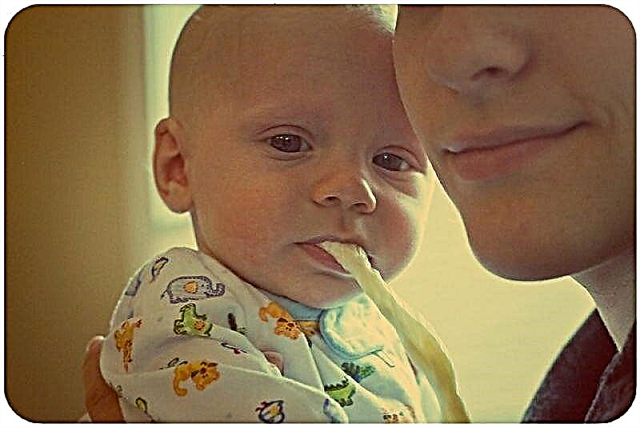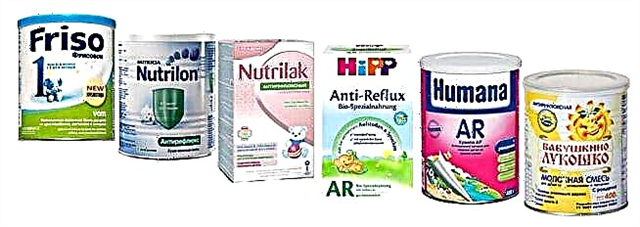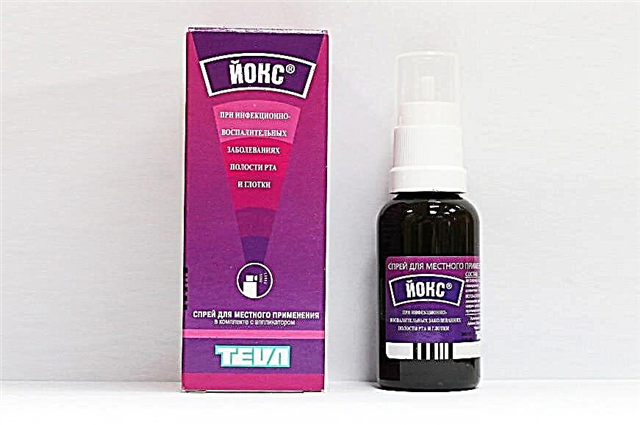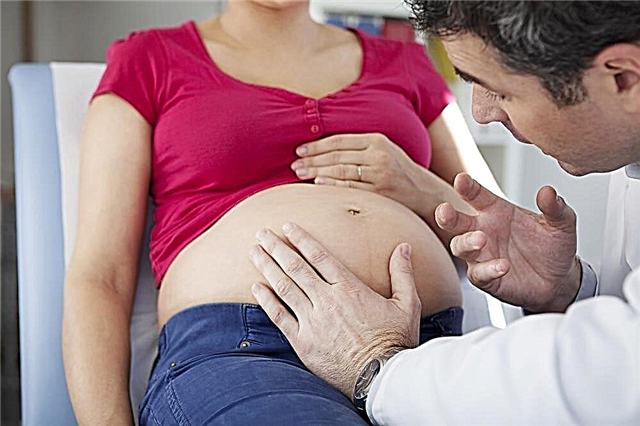All mothers of newborns face such a problem when the child spits up with a fountain. You should not panic in such a situation without first finding out the cause of the body's reaction. If she's trivial, Mom will handle the problem on her own. Why this happens, and how to help the baby, will be discussed below.

Regurgitation fountain
Possible reasons
All children regurgitate after feeding. This is due to the physiological specifics of the newborn's body. The gastrointestinal tract is not yet developed and consists of a small stomach, a short thickened esophagus, a weak sphincter, poorly holding the reverse flow of food.
No matter how well a baby can latch on to the breast, during feeding, he still swallows some air that collects in the stomach. The more it is, the stronger the pressure on the walls. This does not prevent some children from enjoying the process of eating, while others take breaks because of discomfort. If the child burps out like a fountain and does it often, you need to look for another reason.
In an infant in the first months of life, the digestive system is imperfect. The small ventricle is able to absorb only a certain amount of breast milk or formula. Excess product simply does not fit in it and is poured out through the weak sphincter back into the esophagus, and then out. With a strong overeating, the baby will vomit after feeding with a fountain.
This situation is fixable, like the one when the baby waited a long time for food, and then began to swallow milk too quickly. This is more characteristic of premature babies, which are characterized by a weak sucking reflex and breathing problems. Other reasons leading to the regurgitation of a fountain in a baby are more serious and require an immediate response.
Factors stimulating profuse regurgitation
| Cause | Features: |
|---|---|
| Power change | When a baby is transferred to mixed or artificial feeding, the body can react not just with profuse regurgitation, but even with vomiting. This is already a sign of poisoning with a poor-quality product or an allergy to the mixture. |
| Constipation | If the baby is poorly emptied, the remaining food from the stomach is not able to enter the full intestine. Therefore, food has to go back into the esophagus, provoking vomiting. |
| Infections | Germs and bacteria interfere with digestion. Most often, newborns suffer from staphylococcus. Diseases such as meningitis, hepatitis, sepsis may also be present. They are characterized by high fever, pallor of the baby, drowsiness |
| Dispersion | When a baby does not digest well even mother's milk, it will be rejected by an abundant fountain. This may be due to congenital lactose intolerance or poor quality breast fluid. In the second option, everything depends on the mother's diet. |
| Intrauterine hypoxia | Infants who have experienced oxygen deprivation during the perinatal period or during childbirth suffer from gatekeeper spasms. This complicates the breastfeeding process, which often results in profuse regurgitation. |
| Nervous system pathologies | The baby may vomit due to serious disorders in the central nervous system. Abundant regurgitation in this case is accompanied by other symptoms: • with hydrocephalus, the toddler rejects all food; while he constantly cries, throws back his head in a dream; • if the infant has perinatal encephalopathy, he sleeps poorly, behaves restlessly. The consequence of birth trauma can be underdevelopment of the central nervous system, cerebrovascular accident and other pathologies. The main symptom of the disease is profuse regurgitation of milk after each feeding. |

The baby vomited up curdled milk
The reasons for milk gushing include the individual characteristics of the child's body. Due to unfavorable ecology, babies with anomalies in the development of the diaphragm, esophagus, stomach, and sphincter are increasingly being born. For them, every feeding is accompanied by a similar reaction. In this case, only medical intervention will help.
How to fix the situation
Some babies, having drunk more milk, behave calmly, despite the fact that their stomach is swollen. Others begin to hiccup but do not burp, so they will be bothered by colic.
Note! Regardless of how babies behave, the baby should be allowed to regurgitate after each feeding. Sometimes it is worth resorting to this with meals.
How to free your stomach from air
| Method no. | Description |
|---|---|
| 1 | They hold the baby in an upright position so that its head rests on the mother's shoulder. Patting gently on the back, waiting for the baby to burp * |
| 2 | Mom sits the baby on her lap, holding it by the back. Lightly strokes the baby's tummy |
* Tip. A diaper or napkin should be placed on your shoulder if the baby suddenly spits up milk.

Waiting for a standard burp
Some children burp quickly, others do not always succeed. You can help here by doing the following:
- the baby was held slightly upright;
- then put him in the crib for a minute;
- raised again.
Such manipulations will help air move from the ventricle to the esophagus. If there is no belching, the accumulated air will provoke pain in the tummy or cause profuse regurgitation in the next feeding.
How to reduce regurgitation with HB
If the newborn spits up like a fountain, and this happens often, while the baby is healthy, the mother is able to remedy the situation by following these rules:
- you do not need to put the little one to the chest right after sleep; it is recommended to first lay him on his back and do a light tummy massage, moving clockwise;
- the mother should help the baby to properly grasp the nipple along with the areola; while the nose is left as open as possible so that the baby can breathe freely;

Feeding process
Important! It is important to properly hold the baby in your arms while sucking. The upper part of his torso should be at an angle of 45-60 °.
- if the baby is bottle-fed, the hole in the nipple is made small to reduce the flow of the formula;
- after feeding, help the baby to burp air in one of the ways described above, spending at least 20 minutes on this;
- do not swaddle a month-old baby too much after eating; if the baby has switched to the sliders, the elastic bands should not be tight;
- after feeding, the child is put to sleep on the right side; in this case, the head should be raised by 20-30 ° (put a small flat pillow or tuck the mattress).
Profuse regurgitation is not yet an indicator of a serious problem. Your baby can feel good, be active and gain weight. On the 6th month, such manifestations usually stop.
When to worry
Before sounding the alarm, mom must learn to recognize where the usual (albeit profuse) regurgitation is, and where is vomiting.
Signs
| Regurgitation | Vomiting |
|---|---|
| • milk or formula flows out of the mouth in a thin stream immediately after feeding, and not after an hour or more; • regurgitation is triggered by a sharp change in body position; • there are no abdominal cramps; • abdominal muscles do not contract | • a large volume of mass is released from the esophagus; • vomiting is repeated several times, regardless of food intake; • bile comes out with food, which gives the mass a characteristic smell and color; • before vomiting, the baby's breathing quickens, he sweats a lot; • stomach cramps make the baby restless and crying |

The baby vomited
If all the tricks of the mother to establish regurgitation did not give a positive result, you should consult a pediatrician. There are several reasons for concern:
- profuse regurgitation is observed at least 2 times a day; especially if it does not depend on feeding;
- frequent rejection of masses through the nose;
- the baby is consistently underweight;
- regurgitation is accompanied by severe vomiting;
- if at the same time the baby has a fever;
- the rejected mass has an unpleasant curd smell;
- it contains impurities of blood or bile;
- the baby rarely urinates, is weak and drowsy;
- if profuse regurgitation began after 6 months and does not stop after a year.
The more often the baby spits up with a fountain, the greater the risks of developing pathologies in the gastrointestinal tract. Therefore, one cannot do without a serious examination and subsequent therapy.
Treating babies
Having found the true reason why the baby spits up breast milk with a fountain after feeding, the pediatrician draws up a phased therapy plan. The first step in this direction is posture treatment and is described above.
Revision of nutrition
If the baby continues to spit up, they move on to the next stage - medical nutrition. It is based on the following principles:
- an individual feeding regimen is selected for the child - it can be more often, but in smaller portions;
- it is worth trying to introduce a mixed diet - before breastfeeding, give the baby a little therapeutic antireflux mixture (20-40 ml); it contains thickeners, so it is more viscous in consistency than breast fluid;

Anti-reflux mixtures
- Sometimes doctors recommend expressing milk, adding gum or starch to it, and bottle feeding your baby.
Each moment of medical nutrition should be agreed with the doctor, as well as the selection of specialized mixtures that exclude regurgitation.
Health care
The third stage in solving the problem is drug therapy, which is prescribed by the pediatrician on an individual basis. Special drugs, taken according to a certain scheme, will help to establish digestive motility. Although sometimes it is enough to give the baby a remedy to prevent gas formation.
If diseases have led to profuse regurgitation, these factors are eliminated first. Sometimes complex treatment is required together with a gastroenterologist and a neuropathologist.
Note! With abnormal development of internal organs and other serious deviations, surgical intervention is required.
Abundant regurgitation, even with a fountain, can be considered the norm, if it occurs infrequently, has no accompanying symptoms and does not cause discomfort in the baby. It will not hurt to discuss this problem with the pediatrician. After all, the main reason may be more serious, requiring medical intervention.
Pathologies of the central nervous system and malformations of the digestive system, diaphragmatic hernia, lactose deficiency, even ordinary infections are serious factors that inhibit not only physical development, but also mental development.



